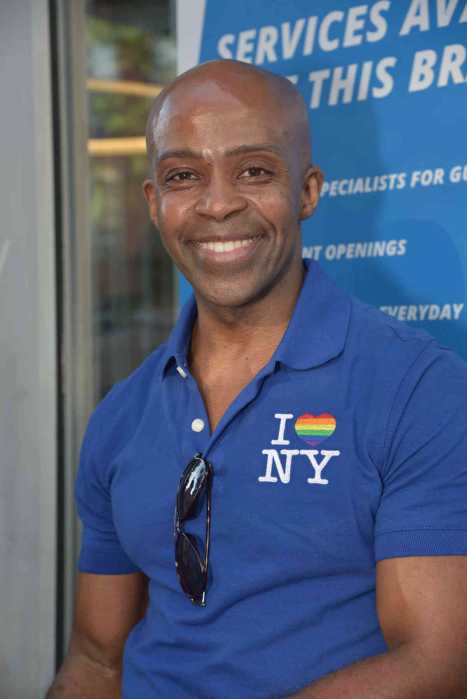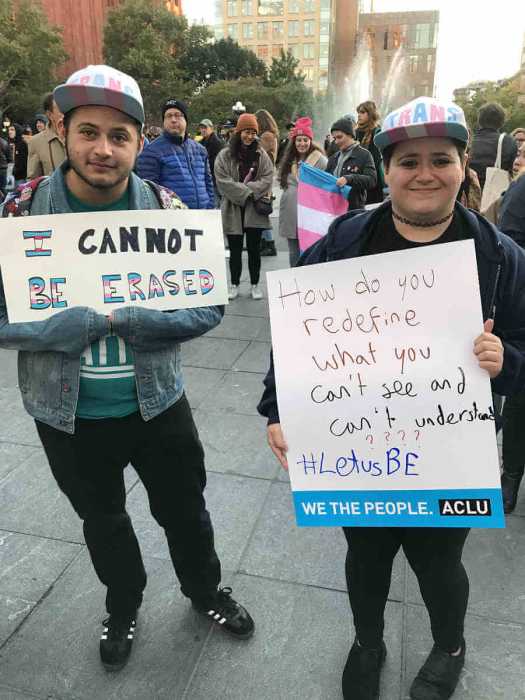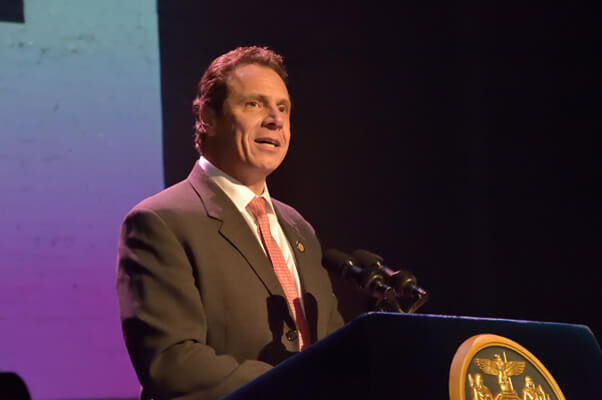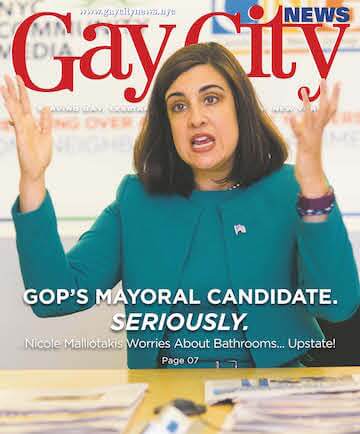New York State Senate Majority Leader Dean Skelos, a Long Island Republican.
BY PAUL SCHINDLER | With a popular governor headed for reelection, 2014 was supposed to be the year when Democrats could make gains in the State Senate sufficient to ensure they would be the governing party come January.
It didn’t work out that way. Instead, Republicans on November 4 increased their share of seats from 29 to 32, just enough to guarantee outright control of the 63-member Senate.
For the past two years, Republicans controlled the Senate only with the cooperation of the five-member Independent Democratic Conference (IDC), plus the vote of Brooklyn’s Simcha Felder, a staunch social conservative from the borough’s large Orthodox Jewish community.
When that governing coalition failed once again to allow a vote on the Gender Expression Non-Discrimination Act (GENDA), a transgender civil rights measure that has languished for almost a dozen years, LGBT advocates were among many groups hoping to see the Democrats improve their numbers in the Senate and woo the five IDC defectors back into their fold.
Nathan Schaefer, executive director of the Empire State Pride Agenda (ESPA), acknowledged the task ahead on GENDA and other key LGBT rights initiatives has been complicated by Tuesday night’s results.
“It makes our job harder than it would have been with another result,” he told Gay City News. In a written release, the group said, “the pro-LGBT majority in the State Senate we had hoped for did not materialize.”
Still, in light of the fact that the state’s gay rights law, hate crimes measure, and Marriage Equality Act were all passed while Republicans controlled the Senate, Schaefer, not surprisingly, noted, “We have a long track record of working on a nonpartisan basis here in New York.”
During the campaign, as Democrats pushed for control, they contended with the fact that Senate districts have long been gerrymandered to favor Republicans. With the growing dominance of Democratic Party enrollment statewide, however, hopes were high that the institutional barriers erected could be swept away by pure demographic force.
Through much of his four years in office, Governor Andrew Cuomo, who won reelection by a 13-point margin on November 4, seemed comfortable with Republicans running the Senate, but they did pose a major block to one of his key goals –– the 10-point Women’s Equality Act.
Then, as he was about to accept his party’s re-nomination this spring, the governor faced a potential revolt from the influential Working Families Party, which threatened to endorse Zephyr Teachout, a progressive law school professor. That possibility led to a brokered deal in which Cuomo committed to push to elect Democrats to the Senate. Shortly thereafter, the IDC announced it had reached agreement with the Democratic Conference to return to the party fold in January.
None of that caucusing, however, amounted to much. Many Democrats and WFP members complained Cuomo did little personally to help out the State Senate push.
In fact, he seemed more interested in ginning up a ballot line for the newly-created Women’s Equality Party. The effort, spearheaded by former City Council Speaker Christine Quinn, was touted as a way to brand Senate Democratic candidates hoping to break through in tough races, though, in the end, few garnered enough petition signatures to qualify for that line on the ballot.
Instead, the push for the new ballot line was largely understood as Cuomo’s revenge against the Working Families Party for making him sweat. Diverting votes to a new third party threatened to deny the WFP the 50,000 votes in the governor’s contest it needs to stay on the statewide ballot in future elections. Many progressive Democrats, especially in New York City, rallied to the WFP’s side, and the party scored more than 100,000 votes, keeping its ballot line intact.
The IDC, for its part, continued its intrigues right up to the election. Jeff Klein, the group’s leader who represents portions of the Bronx and Westchester County, hedged his bets the day before the election, telling WCNY Radio’s “Capitol Pressroom” that “a lot has changed” since the IDC agreed to rejoin the Democrats. He cited support that some Democratic senators gave to primary opponents who took runs, unsuccessfully, at him and his fellow IDC member Tony Avella of Queens.
Now that Republicans can claim a majority all on their own –– without the help of either the IDC or Brooklyn’s Felder –– it’s unclear if Klein has anywhere to go but back home to the Democrats.
But if Cuomo and the IDC didn’t really have their hearts in the push for a Democratic Senate majority, the party’s candidates had their own shortcomings. Three upstate incumbents –– Terry Gipson, Ted O’Brien, and Cecilia Tkaczyk –– lost their seats, two of them by double-digit margins. Democrats also failed to flip any of several Republican seats being vacated by incumbents. In Long Island, a possible pickup went out the window when the Democrat, David Denenberg, quit the campaign after his former law firm accused him of fraud amounting to $2 million. No Democrat took his place on the ballot.
Only in the Buffalo area, did Democrats pick up a seat, with Marc Panepinto prevailing in a four-way race for the seat held by Mark Grisanti, who lost in September’s Republican primary but stayed in the race on the Independence Party line. Ironically, Panepinto won without the support of either Cuomo or LGBT advocates, all of whom felt a debt to Grisanti for his being one of only four Republicans to support the marriage equality bill when it passed in 2011. Cuomo and the Stonewall Democrats of Western New York stayed out of the race, and the Empire State Pride Agenda endorsed Grisanti.
Senator Brad Hoylman, an out gay Manhattan Democrat who sponsors several LGBT-related bills, including one banning licensed mental health professionals from conducting sexual orientation conversion therapy on minor patients, said one factor that hurt Democratic candidates was heavy spending by independent expenditure groups, especially those focused on promoting charter schools, which he argued had an anti-New York City and an anti-immigrant flavor. Those ads, he said, particularly hurt incumbent Gipson and another upstate Democrat, Justin Wagner, who was contesting an open seat.
The question ahead is what is to come of the LGBT community’s agenda –– most prominently GENDA, but also the conversion therapy ban, an end to the state’s ban on surrogacy contracts and other family law reforms, and increased funding for social needs such as housing for homeless LGBT youth.
Even with the participation of the IDC –– all of whose members have endorsed GENDA and the conversion therapy ban –– the Senate leadership in the past two years was unwilling to allow floor votes. It’s unclear how Republicans, with full control of the chamber, can be convinced to move any of these issues. Advocates certainly will turn to the newly reelected governor to press their demands for action.
ESPA’s Schaefer said no specific strategy is in place yet. “We were focused on the elections to see what we would be dealing with in January,” he said.
Despite the group’s disappointment that “many friends of the LGBT community lost their races,” Schaefer insisted, “There are a lot of new faces that we’ve not engaged with yet, and there is an opportunity to work with them.”
ESPA is full cognizant, however, that Cuomo will need to play a lead role if the community’s issue are to get action.
“We’re really going to be working with the governor to move those bills,” Schaefer said, pointing to recent endorsements Cuomo made of both GENDA and the conversion therapy ban.
Melissa Sklarz, a transgender activist, former president of the Stonewall Democrats of New York City, and an ESPA board member, also pointed to Cuomo as the key player moving forward.
“I hope, as a transgender New Yorker, that he uses political leadership on the issue,” she said, emphasizing she was speaking on her own behalf. “Transgender New Yorkers will need the help of the governor in getting GENDA passed.”
Noting she met last year with Republican Senate Majority Leader Dean Skelos, who was “polite and respectful” as they discussed GENDA, Sklarz said she has “no idea about the relationship between Cuomo and the Republican leadership” in the Senate.
Michael Czaczkes, president of Brooklyn’s Lambda Independent Democrats, called on Cuomo to put the sort of capital he used in making marriage equality the law into passing GENDA.
Czaczkes also suggested the IDC might try to keep their relationship with the Republican Senate leadership, even though the GOP can control the chamber without their help. He noted that Diane Savino, a Staten Island member of the IDC, has long been a strong LGBT advocate in the Senate, and Jesse Hamilton, a Democrat who won an open seat in Brooklyn, might join the IDC as well, where he could also push gay issues.
Even if the IDC were welcomed into a coalition with the GOP, however, Czaczkes acknowledged their input would likely be diluted compared to the past legislative session, when their votes were needed to maintain the majority.
Hoylman agreed that the IDC might try to stay in coalition with the Republican majority but agreed with Czaczkes that their leverage in such an arrangement would be less than it had been in the last session.
The afternoon after the national Democratic drubbing, Hoylman sounded weary but insisted, “It’s not all lost… Not all our issues are on ice.”
“I can see a bill like GENDA moving if there’s political muscle behind it and if leaders are willing to make it a priority,” he said. Pressed on whether that political muscle had to come from Cuomo, Hoylman agreed the governor is important but was unwilling to put the bulk of the onus there.



































